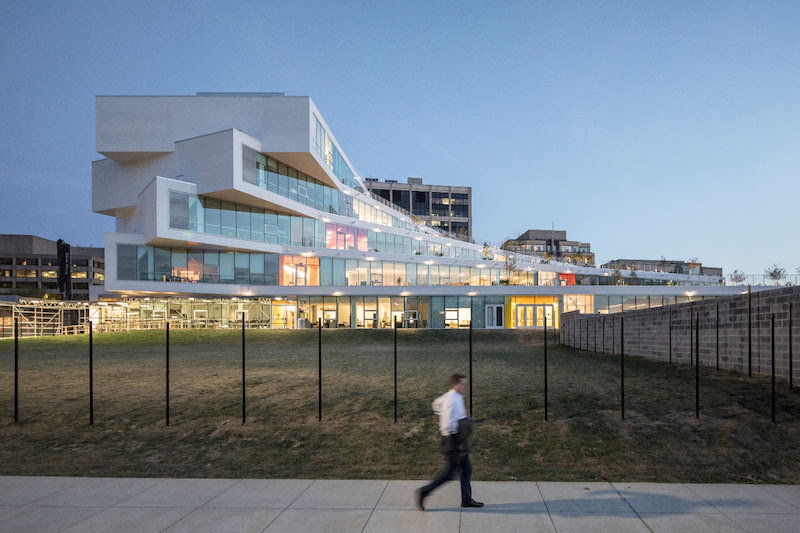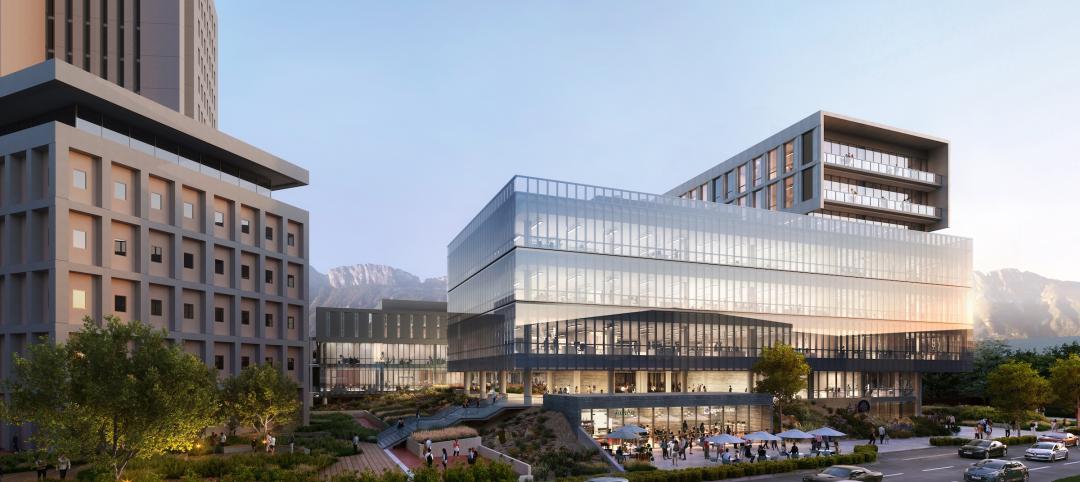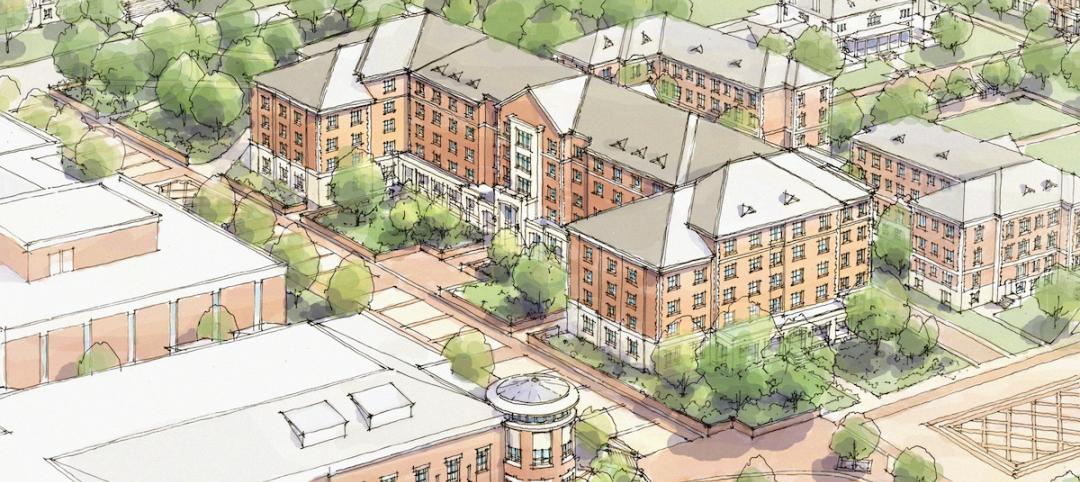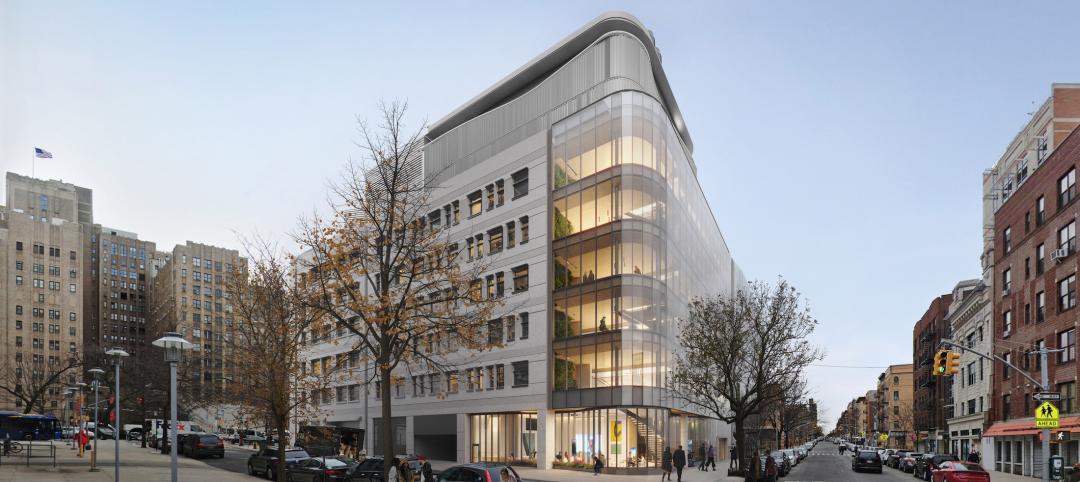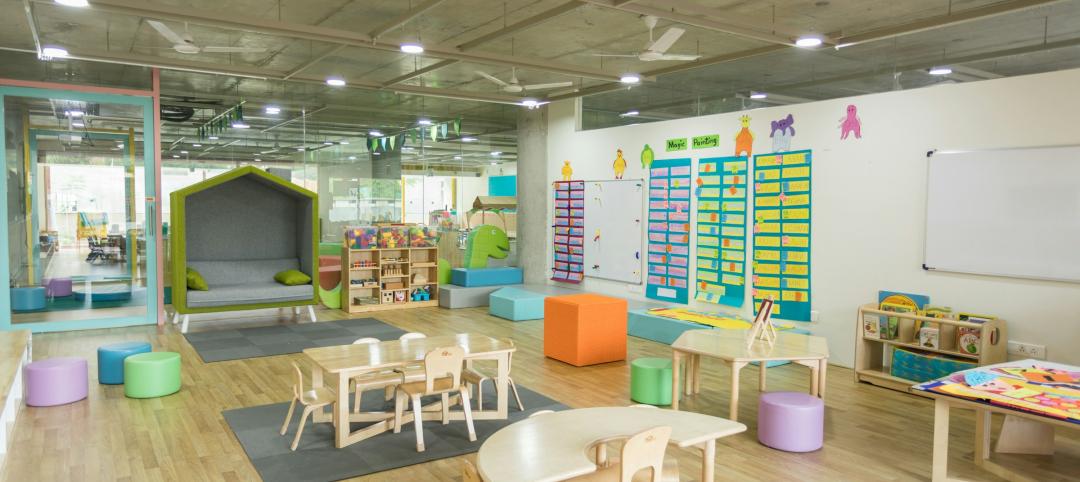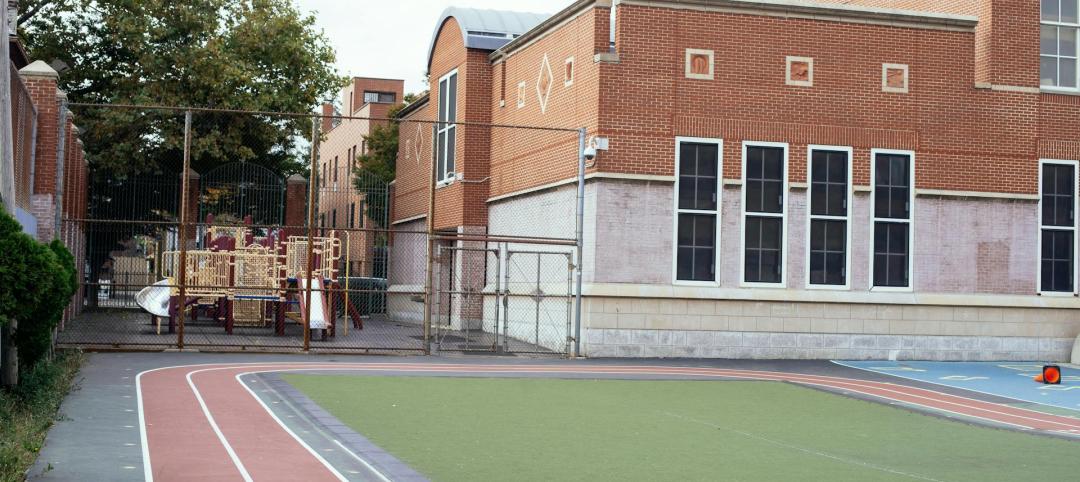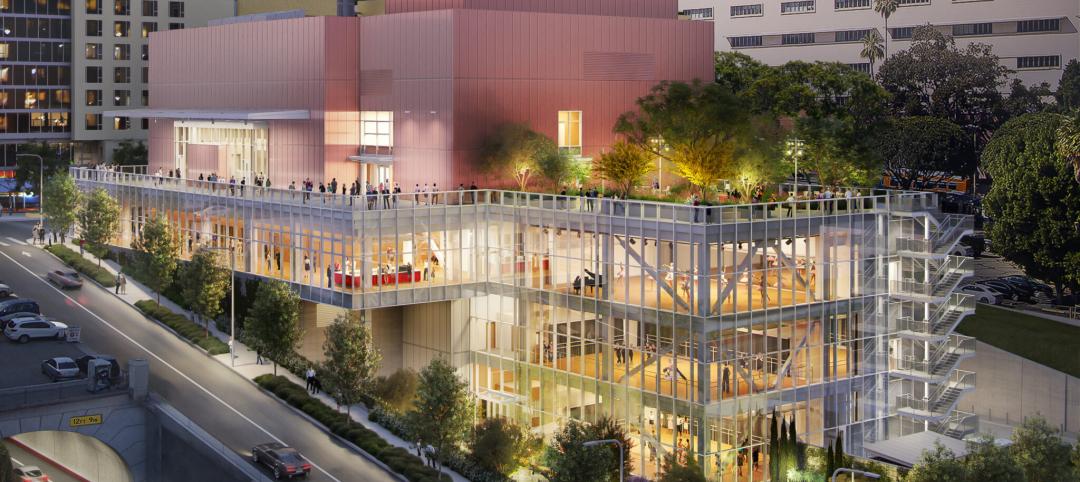The Heights, Bjarke Ingels Group’s first U.S. public school, merges two existing secondary schools (H-B Woodlawn and Eunice Kennedy Shriver) into one 180,000-sf building with space for up to 775 students.
The project, located in Arlington, Va., is situated on a compact site bounded by roads on three sides and a portion of Rosslyn Highlands Park. The Heights supports the visual and performing arts-focused curricula of H-B Woodlawn and the extensive resources for students with specialized educational needs of Enice Kennedy Shriver.
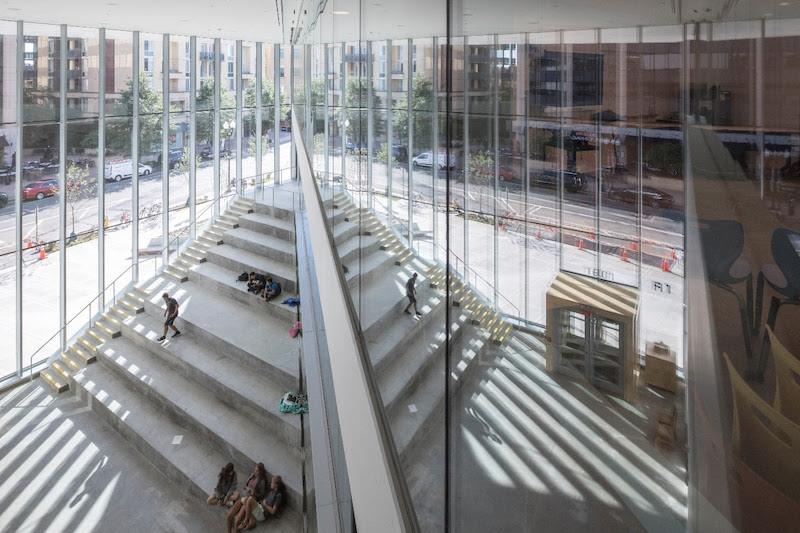
Students and staff are greeted by a triple-height lobby with stepped seating that doubles as an indoor gathering space for student assemblies and public gatherings. Adjacent to the lobby are many of the school’s common spaces including the 400-seat auditorium, main gymnasium, library, reception, and cafeteria. Other student spaces include an art studio, science and robotic labs, music rehearsal rooms, and two performing arts theaters.
See Also: Eight projects showcase the latest trends in student housing
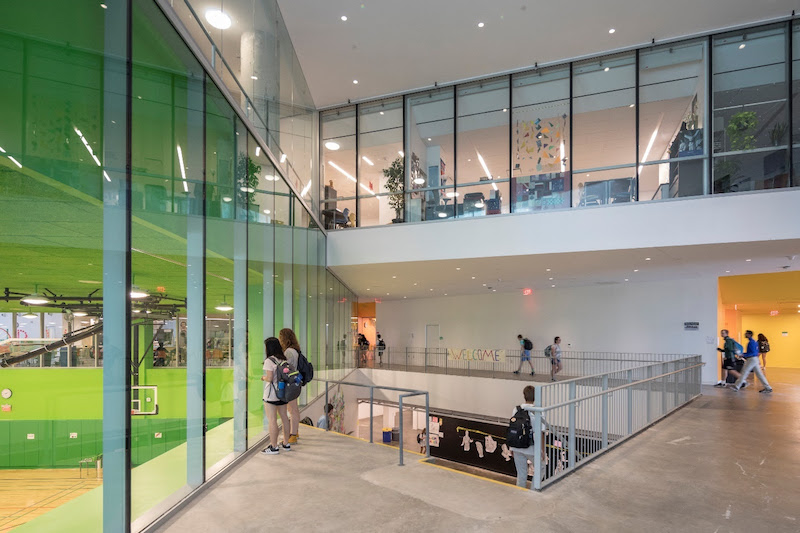
Classroom bars, each defined by its own color, are the primary organizing elements and surround a central vertical core that contains the elevators, stairs, and bathrooms. The Shriver Program occupies two floors of the building, which are accessible from the ground floor and have specialized spaces dedicated to support APS’ Functional Life Skills program as well as privacy and ease of accessibility. The gym, courtyard, occupational physical therapy suite, and sensory cottage are designed to aid in sensory processing.
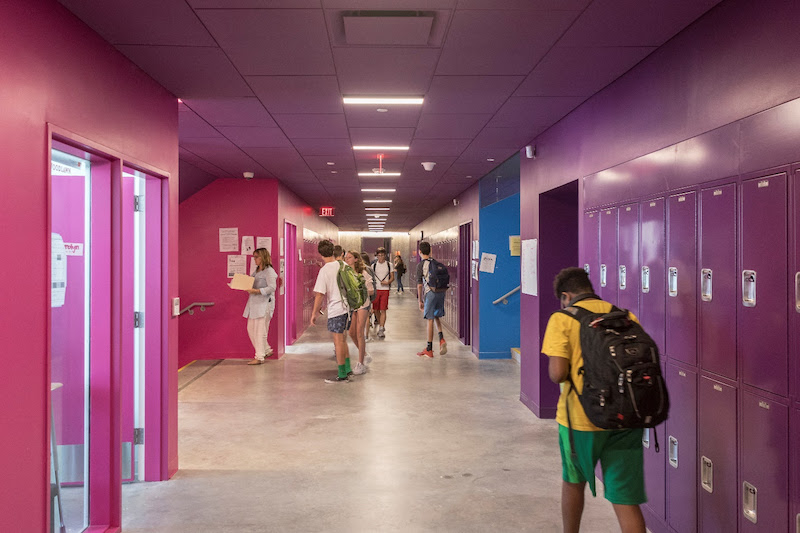
The building is conceived as a stack of five rectangular floorplates that rotate around a fixed pivot point, which creates a cascade of green terraces. The terraces become an extension of the classroom to create an indoor-outdoor learning landscape. The four tiered terraces are connected via a rotating central staircase that cuts through the interior of the building, allowing students to circulate outside. The upper terraces are suitable for intimate classes and quiet study areas while the spacious first terrace and the 18,700-sf recreation field serve as public event venues.
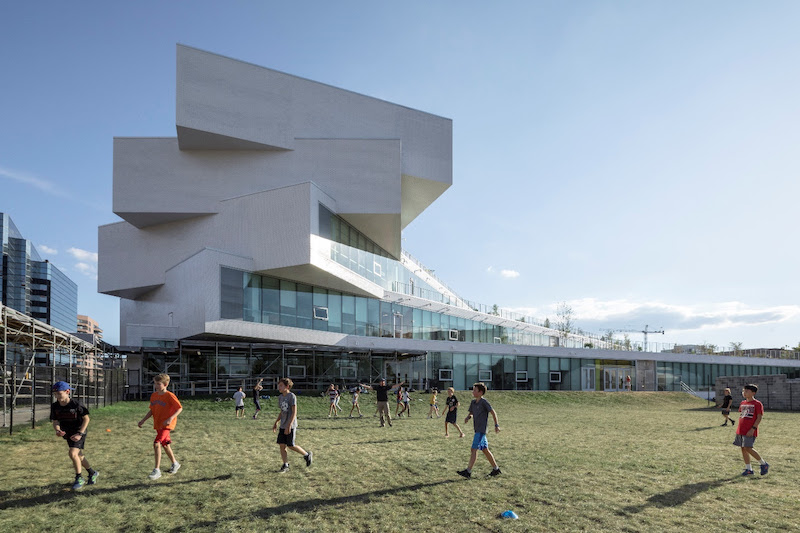
White glazed brick unifies the five volumes and highlights the oblique angles of the fanning classroom bars. The material palette pays homage to the historical architecture of Old Town Alexandria.
The Heights is on track to achieve LEED Gold. Bjarke Ingles Group designed the project with LEO A DALY as the executive architect.
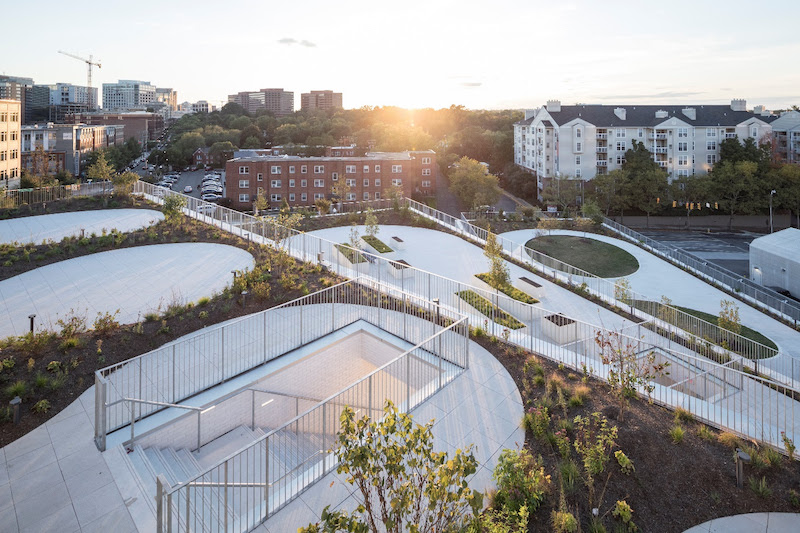
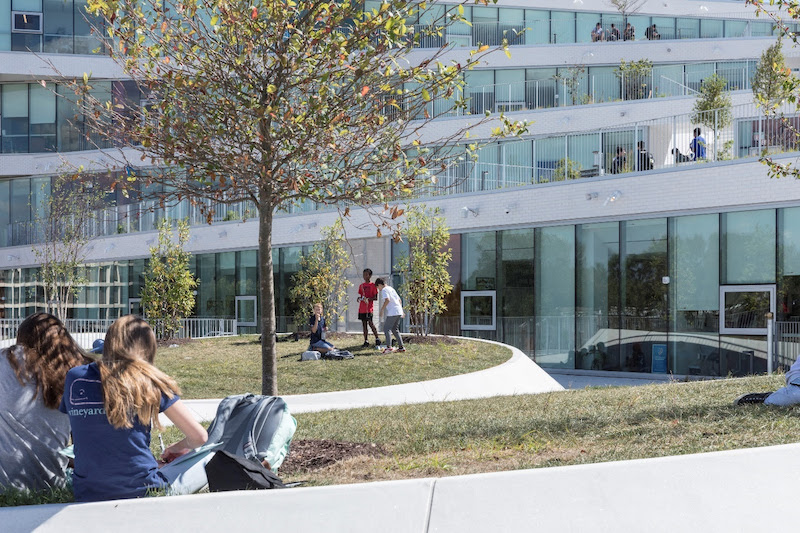
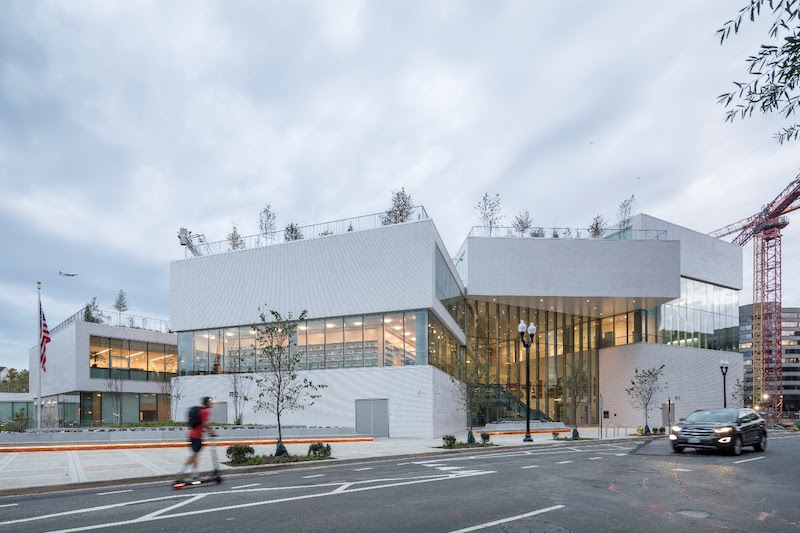
Related Stories
Healthcare Facilities | Apr 16, 2024
Mexico’s ‘premier private academic health center’ under design
The design and construction contract for what is envisioned to be “the premier private academic health center in Mexico and Latin America” was recently awarded to The Beck Group. The TecSalud Health Sciences Campus will be located at Tec De Monterrey’s flagship healthcare facility, Zambrano Hellion Hospital, in Monterrey, Mexico.
Student Housing | Apr 12, 2024
Construction begins on Auburn University’s new first-year residence hall
The new first-year residence hall along Auburn University's Haley Concourse.
K-12 Schools | Apr 10, 2024
A San Antonio school will provide early childhood education to a traditionally under-resourced region
In San Antonio, Pre-K 4 SA, which provides preschool for 3- and 4-year-olds, and HOLT Group, which owns industrial and other companies, recently broke ground on an early childhood education: the South Education Center.
University Buildings | Apr 10, 2024
Columbia University to begin construction on New York City’s first all-electric academic research building
Columbia University will soon begin construction on New York City’s first all-electric academic research building. Designed by Kohn Pedersen Fox (KPF), the 80,700-sf building for the university’s Vagelos College of Physicians and Surgeons will provide eight floors of biomedical research and lab facilities as well as symposium and community engagement spaces.
K-12 Schools | Apr 10, 2024
Surprise, surprise: Students excel in modernized K-12 school buildings
Too many of the nation’s school districts are having to make it work with less-than-ideal educational facilities. But at what cost to student performance and staff satisfaction?
K-12 Schools | Apr 1, 2024
High school includes YMCA to share facilities and connect with the broader community
In Omaha, Neb., a public high school and a YMCA come together in one facility, connecting the school with the broader community. The 285,000-sf Westview High School, programmed and designed by the team of Perkins&Will and architect of record BCDM Architects, has its own athletic facilities but shares a pool, weight room, and more with the 30,000-sf YMCA.
K-12 Schools | Mar 18, 2024
New study shows connections between K-12 school modernizations, improved test scores, graduation rates
Conducted by Drexel University in conjunction with Perkins Eastman, the research study reveals K-12 school modernizations significantly impact key educational indicators, including test scores, graduation rates, and enrollment over time.
K-12 Schools | Feb 29, 2024
Average age of U.S. school buildings is just under 50 years
The average age of a main instructional school building in the United States is 49 years, according to a survey by the National Center for Education Statistics (NCES). About 38% of schools were built before 1970. Roughly half of the schools surveyed have undergone a major building renovation or addition.
Performing Arts Centers | Feb 27, 2024
Frank Gehry-designed expansion of the Colburn School performing arts center set to break ground
In April, the Colburn School, an institute for music and dance education and performance, will break ground on a 100,000-sf expansion designed by architect Frank Gehry. Located in downtown Los Angeles, the performing arts center will join the neighboring Walt Disney Concert Hall and The Grand by Gehry, forming the largest concentration of Gehry-designed buildings in the world.
Construction Costs | Feb 22, 2024
K-12 school construction costs for 2024
Data from Gordian breaks down the average cost per square foot for four different types of K-12 school buildings (elementary schools, junior high schools, high schools, and vocational schools) across 10 U.S. cities.


